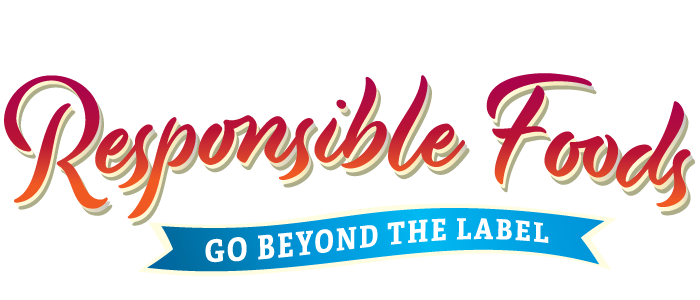Look for These Sustainable and Responsible Food Brands in 2025
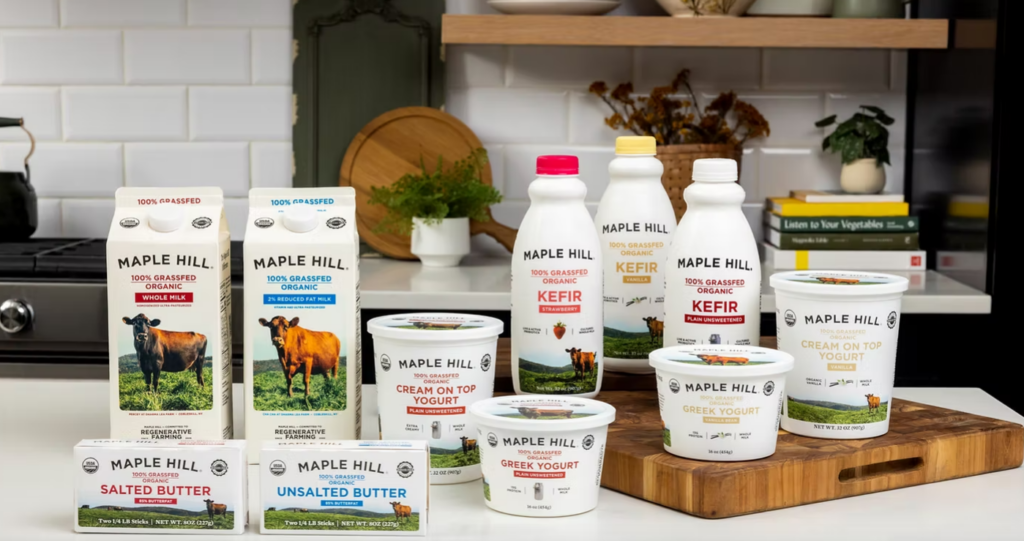
More and more people are paying attention to how their choices impact the environment and society, and this mindset isn’t going away. Food brands that are sustainable and responsible are noticing this and are stepping up in big ways. These companies and their brands are all about protecting the planet, treating workers fairly, making positive social change, and helping consumers find healthier, tastier food.
We’ve compiled a list of companies to look at in 2025. These are all companies we’ve talked about before, except for one. So here we go!
Maple Hill Creamery: Redefining Dairy with Regenerative Farming
100% Grass-Fed
Maple Hill Creamery is the first 100% grass-fed organic dairy brand in the United States. They’ve taken dairy farming to the next level with regenerative dairy farming, focusing on the health of the soil, grass, and cows. In fact, they consider themselves to be grass farmers as well as dairy farmers. Through some careful management of their cows and pastures, the Maple Hill farms pull carbon out of the air and turn it into healthier soil.
Cows eating grass is nature’s aeration. This process replenishes the soil and helps it sustain more minerals, which in turn makes the grass healthier. This process is a win-win for the planet and all who love dairy.
Happy Cows Mean Healthy Milk
At Maple Hill farms, cows roam free on open pastures and are cared for by small family farmers who, believe it or not, actually know each cow by name. Maple Hill says that smaller herds live up to three times longer than average dairy cows, and that this is because they’re treated with compassion and attention. The result? Milk, butter, and yogurt that taste great (yes, that’s a bit subjective) and are packed with quality protein and the perfect balance of omega-3 and omega-6 fatty acids.
Supporting Family Farmers
Maple Hill has more than 130 small family farms in their network, which shows that you don’t need giant operations to thrive. Their farmers have herds of about 50 cows each, ensuring that each operation remains manageable and sustainable. Divide and conquer, right? Maybe that’s not the right idiom, but Maple Hill also ensures fair pricing so the farmers are properly rewarded for their hard work and dedication to both the land and animals.
A Grass-Fed Revolution
Maple Hill started in 2003 as a dream for Tim and Laura Joseph. They just wanted to farm responsibly and take care of themselves. It wasn’t easy—and they got to a point where they were only just barely scraping by. But with determination and the help of Laura’s sister and her husband, they made the business grow.
They didn’t start the farm feeding their cows grass. But once they switched to grass-fed, they saw the health of their cows improve. And this commitment to grass-fed dairy has struck a chord with conscious consumers. Today, Maple Hill is setting the standard for grass-fed dairy.
Dave’s Killer Bread: Baking Second Chances
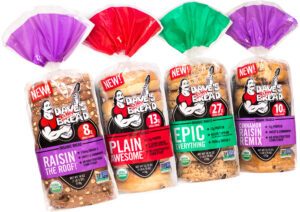
Dave’s Killer Bread is about more than just delicious, wholesome bread—it’s about creating opportunities. The company was founded by Dave Dahl, a former inmate who turned his life around at the family bakery. Because Dave got his own second chance, he has built his company on the belief that everyone deserves a second chance. Through their Second Chance Employment program, Dave’s Killer Bread hires people with criminal records, breaking down barriers and giving these members of society a fresh start.
Every loaf of this organic, seed-packed “killer” bread not only tastes great but also supports this important work of reintegrating people back into society.
Lotus Foods: Keeping Rice and Farming Sustainable
Changing How Rice is Grown
Lotus Foods is shaking up the rice game with some cool sustainable farming practices that use less water, decrease methane emissions, and support small-scale farmers. Thanks to the System of Rice Intensification (SRI), they’ve cut methane emissions by 40% and have helped more than 5,000 farming families worldwide.
Fair Trade and Regenerative Practices
Lotus Foods also pays Fair Trade premiums and champions organic and regenerative farming. By preserving heirloom rice varieties, they are helping to protect biodiversity and lending support to healthier farming practices.
Alter Eco Foods: Save the Planet with Chocolate?
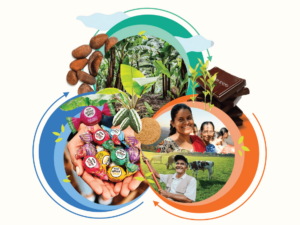 Regenerative Farming and Agroforestry
Regenerative Farming and Agroforestry
Alter Eco Foods proves you can eat chocolate and help the environment at the same time! And who doesn’t want to do that? This company also focuses on regenerative farming along with dynamic agroforestry. They grow cacao plants together with native species like banana trees to mimic natural ecosystems and enrich the soil.
Carbon Neutrality and Sustainable Packaging
Since 2010, Alter Eco has been 100% carbon neutral, and they use recyclable or compostable packaging to reduce waste. They also prioritize fair trade practices, supporting small-scale cacao farmers and those farmers’ communities while producing some delicious chocolate you can feel good about eating.
Lundberg Family Farms: Pioneers in Rice Farming
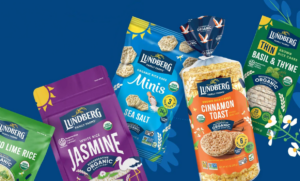 A History of Responsibility
A History of Responsibility
The story of Lundberg Family Farms began in the 1930s when Albert and Frances Lundberg moved to California and began farming with the environment in mind. Today, the Lundbergs are leaders in organic rice production by blending innovative methods with sustainability.
Supporting Wildlife, Managing Water, and Improving Soil Health
The Lundberg rice fields also double as habitats for over 200 species of wildlife. By flooding their fields in the winter, the Lundbergs help migrating waterfowl while also improving the health of their soil naturally. It’s a win-win for nature and farmers.
Regenerative Organic Goals
The Lundbergs are on a mission to make all their rice Regenerative Organic Certified by 2027. By using cover crops and taking advantage of other regenerative practices, they’re showing how farming can work hand-in-hand with nature, not against it.
Dairy, bread, rice and even chocolate—these brands are proving that sustainability doesn’t have to be just a buzzword. It can be a real way to make the future better. Supporting these companies can mean supporting a healthier planet, stronger communities, and better food for all of us. Keep these names in mind as you shop in 2025 and join the movement toward a more sustainable world.
